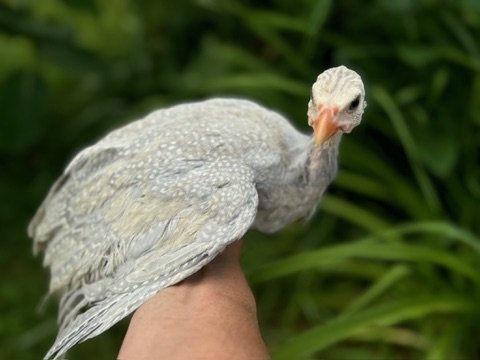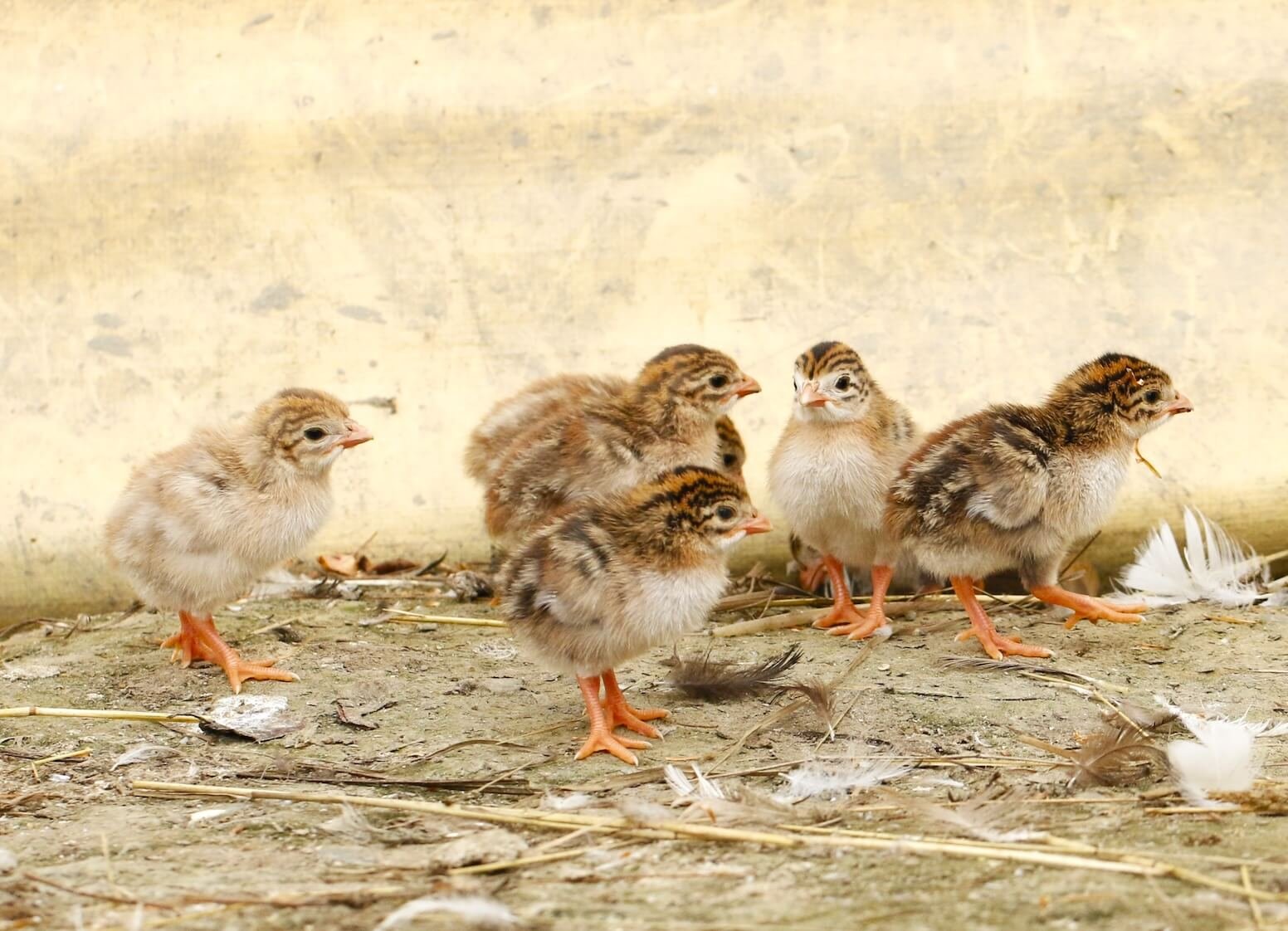-
Why Guineas?
A natural alarm system and guardian bird – sounding the alarm whenever anything unusual occurs.
Consume large amounts of insects. Natural Lyme disease prevention!
Are easy and inexpensive to raise, resistant to many diseases.
Fend for themselves, living on insects, seeds, and grasses. Lower feed costs. Still need a balanced diet.
Guineas feed on ticks/bugs as a food source, it’s a more natural (greener) way to control the insect pest population, allowing reduced use of chemicals and pesticides. Guineas will kill rats, mice and snakes.
Eggs – did you know their eggs have more protein than chicken eggs? 15 g of protein compared to 6g of protein. Great for a keto diet!
They are very tasty and make a great table bird.
Are you looking to add a valuable asset to your farm that offers a range of benefits? Look no further than guinea fowl!
Natural Pest Control
Guinea fowl are renowned for their voracious appetites for insects and pests. By adding guinea fowl to your farm, you can significantly reduce the population of ticks, beetles, and other harmful insects without the need for chemical pesticides.
Low Maintenance
These hardy birds are relatively low maintenance, requiring minimal care compared to other poultry. They thrive in free-range environments and are excellent foragers, requiring less supplementary feeding.
Watchful Protectors
Guinea fowl are known for their vigilant nature. Their innate ability to detect and alert to potential threats makes them excellent watchful guardians for your farm. They can help alert you to the presence of intruders or predators.
Delicious and Nutritious Eggs
Guinea fowl eggs are a delicacy, prized for their rich flavor and nutritional benefits. By keeping guinea fowl, you'll have a fresh and unique addition to your farm's egg production.
-
Guineas are fascinating and social creatures that thrive in a flock environment. Their camaraderie is unmatched; where one goes, the others follow closely behind. If a guinea happens to stray from the group, it will call out, encouraging its flockmates to come and find it.
While guineas can cohabitate peacefully with other birds like chickens and ducks, they often prefer to take the lead, especially the males. As they mature, you may find that some separation becomes necessary to keep the peace among your feathered friends. Keets, or young guineas, can start out being raised alongside other baby poultry but will need their own space once they reach a more rambunctious stage.
In terms of living arrangements, guineas naturally love to roost high in trees or above-ground spots. Therefore, it’s important to ensure that your coop has elevated roosting options. They require proper housing to retreat to, especially during inclement weather or at night. Leaving them outside after dark poses a serious risk, as they become vulnerable to aerial predators.
To encourage your guineas to return to the coop each evening, try using a consistent call along with their favorite treat, millet. It's best to do this before it gets dark, as they tend to be apprehensive about entering a dark space. Keep a low-light bulb on in the coop until they are all settled in for the night.
If you choose to keep your guineas in confinement, provide them with 4 square feet of space per bird to ensure they remain healthy and stress-free. Remember, these semi-wild fowl do not thrive in overly cramped conditions.
In the wild, guineas are monogamous and mate for life, with a recommended ratio of one male to five females generally yielding harmony within the flock. Finally, always keep in mind that guineas can be quite vocal, so it's prudent to consider your neighbors and check local zoning regulations before bringing them home.
-
Guineas are considered a gamebird and need higher protein when developing. We recommend Sugar Feather Farm gamebird starter, when they are keets, Sugar Feather Farm gamebird grower when they are growing, and when the hit maturation you can switch to our adult feed.
We also highly recommend purchasing the oil of oregano — it helps with overall gut health and bird health.
We highly recommend using the Oil of Oregano in their water daily as a supplement to aid with digestion and overall health.
Humane Steward™ Certified
This bird is raised under farmer-developed humane care standards focused on space, enrichment, respectful handling, and natural behaviors.










